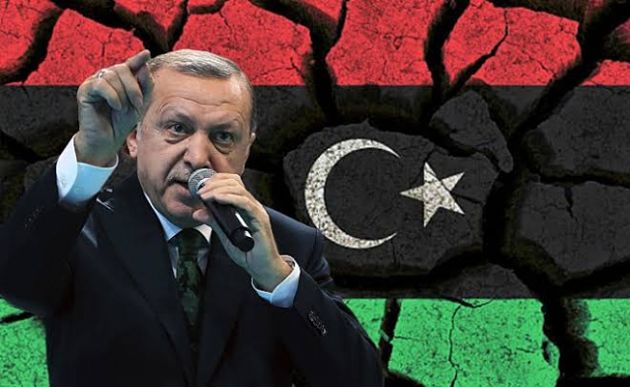Turkey is upping its game in Libya. It recently signed a number of cooperation agreements, including military and economic ones, with the internationally recognized Government of National Accord (GNA), which is opposed by coup leader Khalifa Haftar, backed by the «anti-Ikhwan» consortium.
Now, Turkish President Recep Tayyip Erdogan has declared that his country can send its military personnel to Libya if the GNA requests it. «Regarding the deployment of military personnel in Libya, the Wagner Group from Russia has sent its people there. If Libya makes such a request to us, we will also send our military personnel there, especially after the conclusion of the agreement on military security,» he told journalists.
«Wagner» was mentioned for a reason. Recently, thanks to the support of Russian military experts, the effectiveness of Haftar’s coup forces, which were on the verge of collapse after a series of recent military failures, has increased. In other words, the Kremlin is clearly trying to repeat the Syrian scenario in Libya, where it managed to save Bashar al-Assad, who was on the verge of total collapse.
But there are many «buts» that distinguish the situation in Libya from that in Syria. First and foremost, as we have written many times before, the revolutionary overthrow of Gaddafi in Libya became a huge advantage for them, as they managed to create a government that gained international recognition. Thus, while in Syria the rebels are opposing a regime that, despite all reservations, is still considered a «legitimate power» by many in the world, in Libya they themselves represent such a legitimate power.
Donald Trump suddenly remembered this the other day when he attacked Haftar in one of his tweets. He accused him of playing a very dangerous game without realizing the consequences it would have on the Libyan people, of choosing the wrong allies and paying for it with his defeat, and reminded that Libya already has an internationally recognized government (GNA) and does not need anything else. How many times have we asked ourselves «what was that?» about Trump’s statements and tweets? After all, it is the U.S. that once nurtured and supported Haftar, and it is its allies — Saudi Arabia and the UAE — that are actively supporting him?
Could Trump be angered by Russia’s growing influence over his (former?) client? This cannot be ruled out, just as it cannot be ruled out that the Americans, in their usual way, are dragging different players into conflict with each other. In this case, the main players are Turkey and Russia. Saudi Arabia and the UAE are not Turkey’s opponents in military terms — they have demonstrated the «effectiveness» of their armed forces in Yemen, and now a similar story is unfolding in Libya, aggravated for their client by the fact that they cannot overwhelm their opponent with numbers.
The Russian military, on the other hand, is a more formidable opponent, but in this case Turkey may be the one to go all in and provide the GNA with its «numbers» in the form of a regular army. This can be facilitated both by the international recognition of the GNA and by the geographical proximity of Libya to Turkey, as opposed to its much greater distance from Russia, which, moreover, has not yet decided to recognize Haftar as the legitimate ruler of Libya and is cooperating semi-formally with him, just as Turkey is doing with the Syrian opposition.
It should also be noted that due to its geographical proximity, Libya is much more important for Turkey than for Russia. For the latter, or rather for Putin and his group, Libya is just another adventure, as well as a traditional market for mercenary services. For Turkey, on the other hand, Libya is an important part of its new regional strategy, which we wrote about this summer.
On the other hand, as we wrote then, the opposition to this Turkish strategy will also be serious. It is this opposition, by the way, that can explain the rather strange behavior of French President Emmanuel Macron recently, who has become a great friend of Vladimir Putin while at the same time suggesting that Turkey be expelled from NATO.
Unlike Russia, France is close to Libya and what is happening there directly affects its vital interests, not least because of the refugee problem and the Mediterranean trafficking linked to this country. But because of its militant secularism and its obsession with fighting «political Islam», which aligns it with the Kremlin, France has backed Haftar in Libya, who has managed to «sell» himself as a fighter against «Islamists», receiving support from Saudi Arabia and the UAE as well as from France and Russia.
It is unlikely that this anti-Ikhwan consortium will give up its plans easily. But Turkey, judging by everything, is serious and has important arguments in this confrontation…

